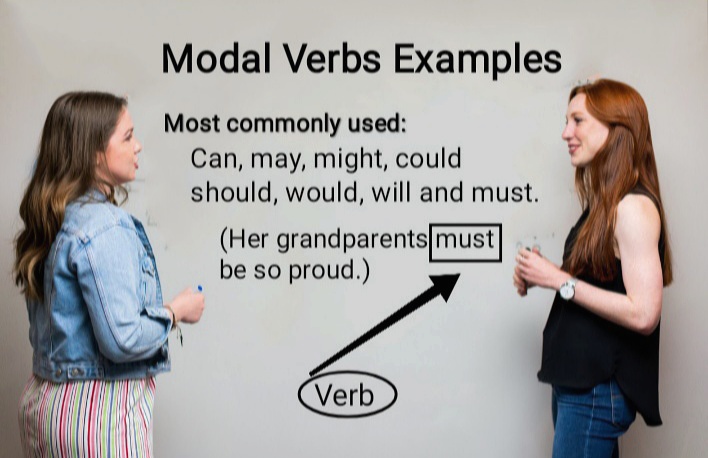What Are Modal Verbs? And How To Use Them?
Model verbs show possibilities, intentions, abilities, or needs. Because they are a kind of auxiliary verb (auxiliary verb), they are used together with the main verbs of the sentence. Examples in general may include, should and must.
Model verbs can be difficult, especially when it comes to using them in a sentence. The good news is that learning them is easy. Below, we explain what you need to know in order to use modal verbs easily.
What Are Modal Verbs?
Modal verbs are used to express some imaginary state, such as suggestion, power or request (the next section contains a complete list). These are used to slightly change its meaning with one of the main verbs. Since they are auxiliary verbs, they cannot necessarily be used on their own. (A modal verb should be viewed alone if it is clear from the context what the original verb is.)Consider the difference between the following 2 (two) examples:
- I swim every Monday.
- I can swim every Monday.
The first (1st) example is a simple practical statement. The speaker participates in a swimming activity every Monday.
The second (2nd) example uses the modal verb can. Notice how the meaning varies slightly. The speaker does not swim every Monday; They say they are able to swim every Monday if needed. It is speculative.
Thus, modal verbs are quite common in English, and you've probably seen them hundreds of times without knowing their names. Most commonly used:
- can
- may
- might
- could
- should
- would
- will
- must
There are more model verbs, though the ones above are the most common. Some modal verbs are old and rarely used — as it should be and should be — while others are more conversational — such as get, need, or do. Some express very specific conditions that do not often come up, like dare, for example, "I dare to say." The phrase that is used, such as "I use to be an English student," also behaves like a standard verb.

When Are Modal Verbs Used?
What special conditions do modal verbs show? Here is a list of when to use model verbs with examples:Likelihood
Some things may seem like it, but we don't know for sure. In this case, you can use modal verbs to show probability without certainty.
- Her grandparents must be so proud.
- My baby sister should be asleep by now.
Possibility
In situations where something is possible but not certain, modal verbs can, may or may not be used.
- Judging by the clouds, it may rain today.
- He may become the youngest professional football player.
Ability
The modal verb can show whether the subject is capable of doing something, such as performing an action or demonstrating a power. Similarly, the negative form, can or will not, shows that the subject is unable to do anything.
- He can speak four (4) languages, but none of them well.
- You can take a bear to the water, but you can't get it to drink.
Request
Similarly, if you ask another person to do something, start your question with will, would, could, or can.
- Would you take this box off the top shelf?
- Will you stop that music down?
Suggestion/ advice
What if you want to recommend something but don't order? If you are giving advice or advice to someone in the neighborhood without ordering, then you should use modal verbs.
- You should try Lasagna.
- That boy should wear less cologne.
Command
On the other hand, if you want to order someone, you have to use modal verbs, do or need.
- You need to be here before 8 o'clock.
- You must wash your hands before eating.
Modal Verb Examples
All of the following sentences use modal verbs. Modal verbs are not usually used by yourself, so you can usually find them by searching for the original form of a verb before a verb or phrase that is working with it to change the meaning of a sentence. Note that modal verbs can also be used negatively.- Ants can carry much heavier objects than themselves.
- If I had time, I might be able to collect groceries on the way home.
- We need to wear masks so that no one can recognize us.
- Should we walk to the school or ride our bikes?
- Amanda couldn’t find her favorite shirt.
- They weren’t able to convince Alex to give them money.
- I would give my puppies a bath, but they are still very young.
More: Linking Verb Definition
Summary: What Are Modal Verbs?
Define modal verbs: The definition of modal verbs is a specific type of auxiliary verb used to express probability.- In short, a model verb
- Is a helping verb
- Must be used with a main verb
- Always a part of a verb phrase
- Can be negative
- Doesn't change form for different subjects














No comments:
Post a Comment